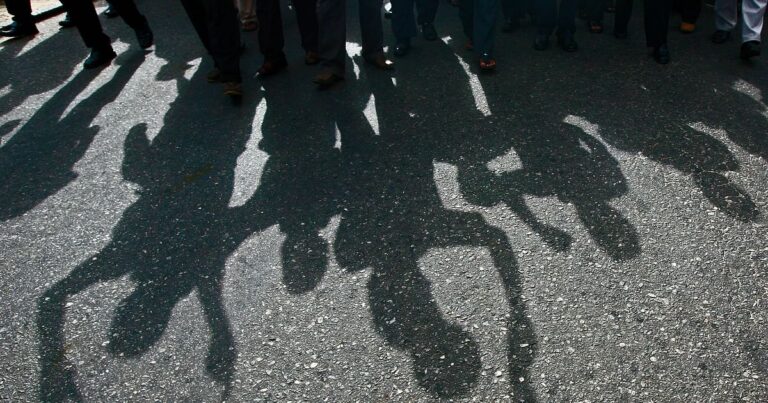Are we reaping the fruits of the anti-Muslim rhetoric that characterized the just-concluded election campaign? Does the recent surge in lynchings and sectarian violence have anything to do with the election results? Or are these just regular outbreaks of vigilantism and hatred in the “new India”?
Apparently, it’s both.
In fact, three separate incidents of Hindu-Muslim violence broke out over poll numbers: in a village in Nuh, Haryana, and in Jaunpur, Uttar Pradesh, where two Hindu youths who supported the Bharatiya Janata Party (BJP) were attacked. In Jaunpur, the attack escalated into a clash between the two communities.
In Mangalore, two BJP victory rally attendees were stabbed after mocking Muslims and telling them to go to Pakistan after Modi’s victory.
But such a direct link would be hard to find in other cases. Were those who lynched three Muslims for transporting cows in Chhattisgarh motivated by the BJP’s crackdown in the state? Among those arrested was the spokesman for the BJP’s Bharatiya Janata Party alliance.
Or was this incident a departure from the violence that has characterized Bakri Eid since last year? The arrest of a shopkeeper and ransacking of his shop in Himachal Pradesh after his WhatsApp status showed the sacrifice of a buffalo, as well as clashes in Odisha and Telangana, seem to suggest this.
Conspiracy theories have circulated that Hindutvadis are taking revenge against Muslims who voted for the Indian Union and took away the majority of seats from the BJP, or that Hindutvadis are still in control despite the BJP’s weakened position, but most of the incidents since June 4th do not point to such a causal link. In West Bengal, there have been a series of lynchings of both Hindus and Muslims who are rumored to have kidnapped children or stolen mobile phones. In Uttar Pradesh, too, initial reports attributed the lynching of a youth in Aligarh to rumors that he had plotted a robbery. Police filed a robbery case against the deceased Aurangzeb based on a complaint received 11 days after the lynching. When the arrests began, not only the BJP but even traders in the area protested.
Implicit in these protests was the idea that thieves deserved to be killed by the mob. In fact, all these incidents point to our regression to a society ruled not by law but by mob rage against those who “offend our religious sentiments” or are rumored to have committed crimes.
But there was a silver lining to these incidents. Odisha was where, in 1999, Dara Singh burned alive the missionary Graham Staines and his two young sons. Two years ago, the state’s newly appointed chief minister staged a protest against prison rules that forbade Dara Singh, now serving a life sentence, from meeting with outsiders. But the administration, which reports to the hardline ethnic Swayamsevak Sangha, refused to allow the Bakri Eid riots to continue beyond the day itself, arresting 89 people.
Similarly, in Chhattisgarh, where the chief minister is an RSS member, the lynching of three Muslims sparked public outrage, forcing the police to act and arrest BJP leaders. The public outrage in Chhattisgarh may have been inspired by the growing strength of the parliamentary opposition.
While these incidents are all shameful, some point to deeper discord: when the two gates to Jodhpur’s Eidgah were demolished, Hindus, infuriated by the prospect of more Muslims visiting the area, rioted.
And in Anand, Hindus infuriated by Muslims’ success at a cricket match lynched a Muslim spectator in an argument over parking. Salman Vohra was 23 and newly married. Nine suspects have been arrested, but two have not been named by witnesses.
There was also the incident where a Muslim home was demolished by the Madhya Pradesh government just before Bakri Eid after beef was allegedly found in the refrigerator. While these three incidents show unlawful acts of violence by the majority, the last incident was an act of violence by the state itself.
Do these three incidents have anything to do with the election results? Opposition to new mosques as they will increase the influx of Muslims is not new, but in Jodhpur this opposition has taken a violent turn.
In Gujarat, two Muslims were lynched (one died) by cow vigilantes just a month before the Anand lynching. In MP, the day after the new Chief Minister took office in December last year, Muslim homes were destroyed in Bhopal and Ujjain in retaliation for the alleged crimes.
This is not an election, it is simply a step towards a “Hindu Rashtra”.
(Jyoti Panwani is a senior journalist.)
Disclaimer: The views expressed above are the author’s own and do not necessarily reflect those of DH.

